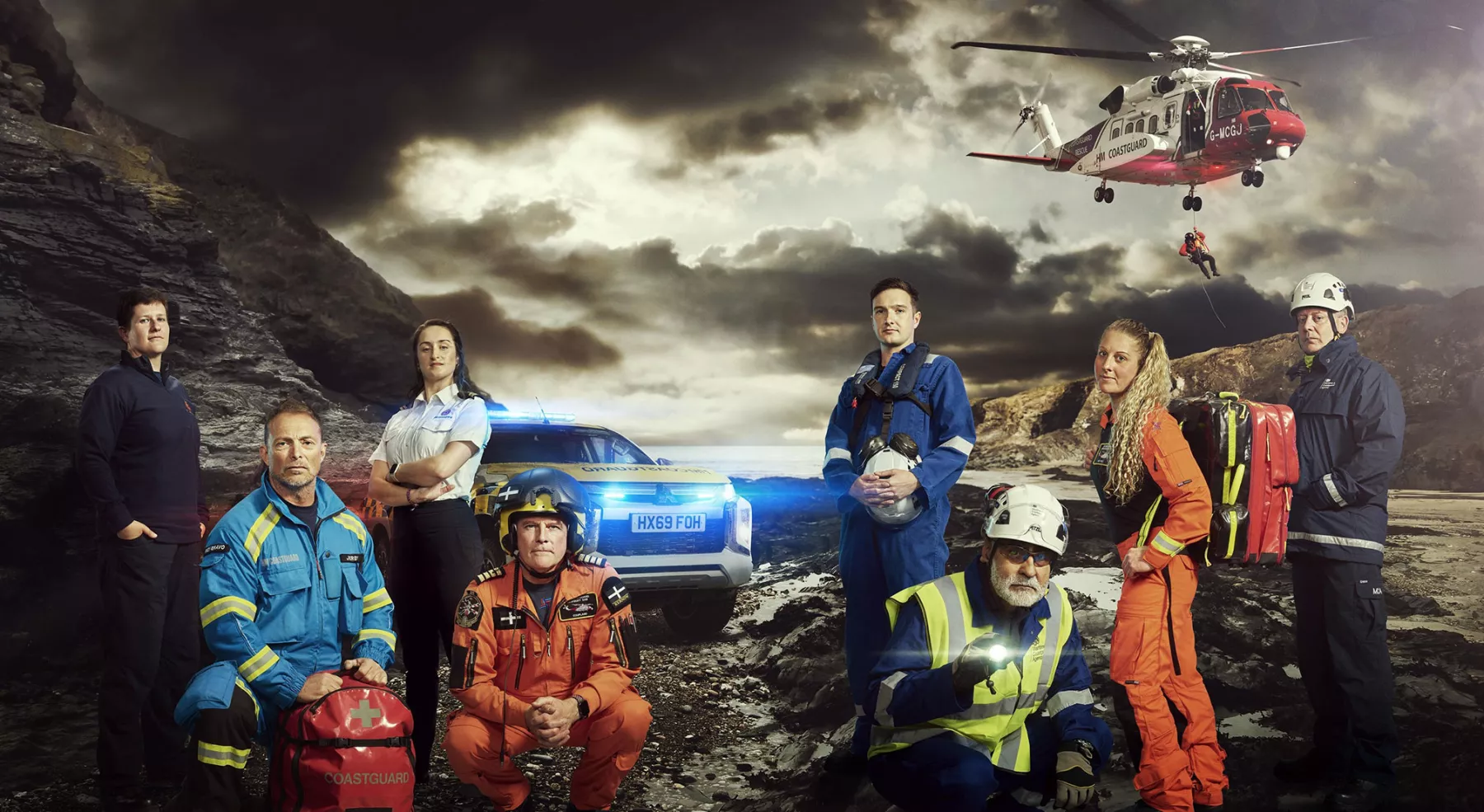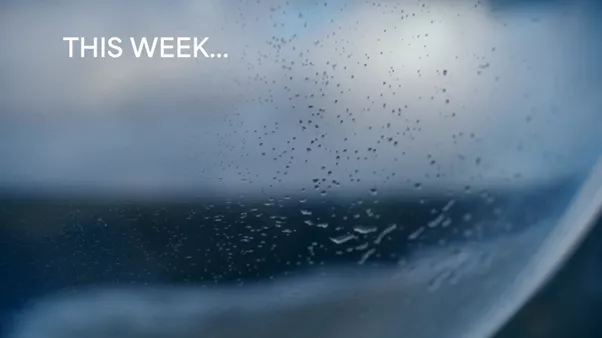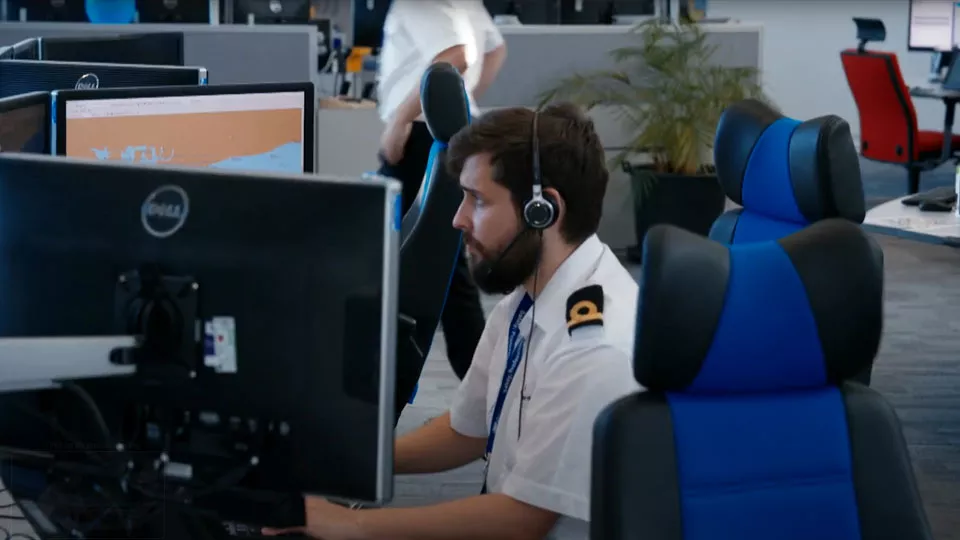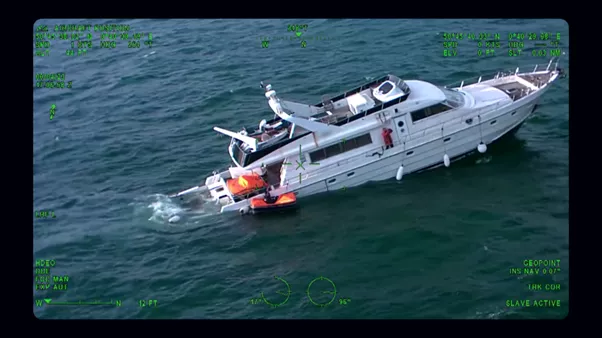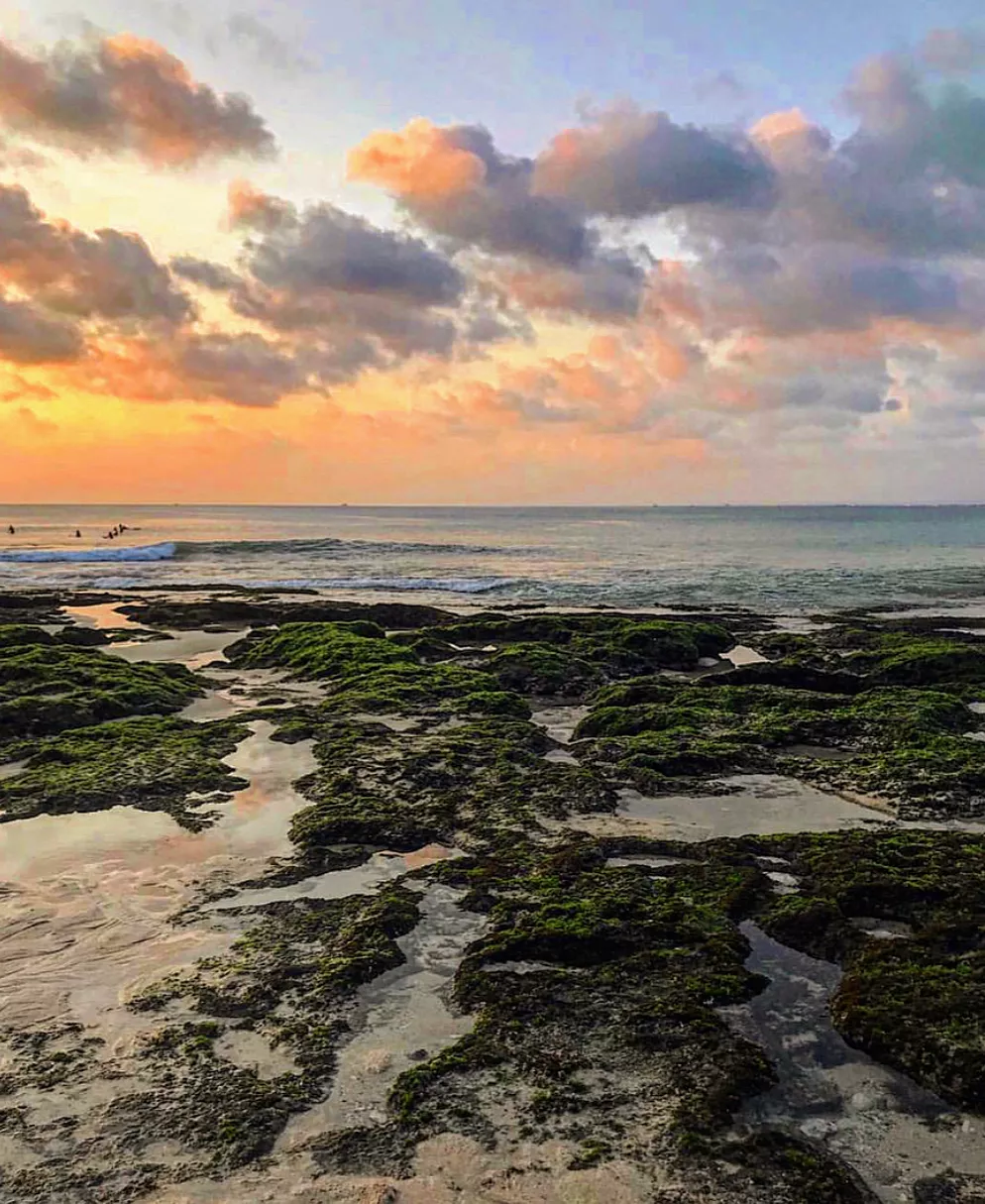The action continues in episode five on Sunday 30 July
Episode five of Coastguard, the observational documentary following the inner workings of the Maritime and Coastguard Agency, will begin with dramatic rescue footage as HM Coastguard receive a Mayday call from a vessel reportedly sinking, and fast. Meanwhile, safety checks over UK waters continue to encourage safe working practices at sea and MCA surveyors will re-inspect a detained vessel in Teesport to see if safety concerns have been addressed. The operations room at the JRCC receives a 999 call from a passer-by who can hear someone screaming for help while the Prestwick helicopter responds to a call for help despite worsening weather, with lightning, heavy rain and poor visibility…
